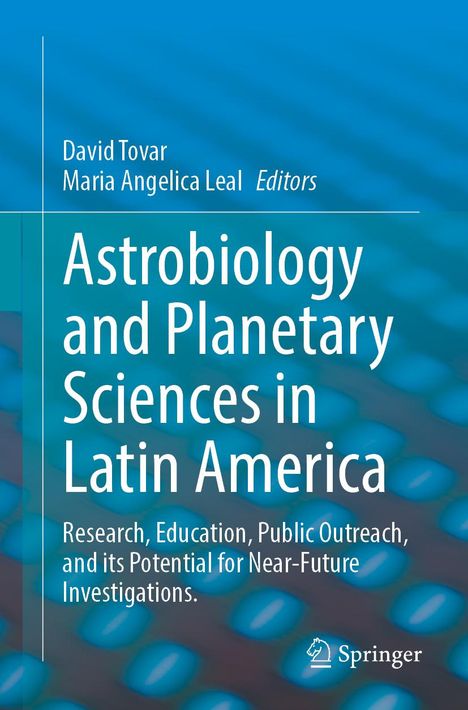Astrobiology and Planetary Sciences in Latin America, Kartoniert / Broschiert
Astrobiology and Planetary Sciences in Latin America
- Research, Education, Public Outreach, and its Potential for Near-Future Investigations.
(soweit verfügbar beim Lieferanten)
- Herausgeber:
- David Tovar, María Angélica Leal
- Verlag:
- Springer, 11/2025
- Einband:
- Kartoniert / Broschiert
- Sprache:
- Englisch
- ISBN-13:
- 9783032014498
- Artikelnummer:
- 12342464
- Umfang:
- 188 Seiten
- Gewicht:
- 295 g
- Maße:
- 235 x 155 mm
- Stärke:
- 11 mm
- Erscheinungstermin:
- 4.11.2025
- Hinweis
-
Achtung: Artikel ist nicht in deutscher Sprache!
Klappentext
The main goal of this book is to communicate the current research projects held in Latin America regarding Astrobiology and Planetary Science topics. Chapter 1 is based on a report by the International Astronomical Union (IAU) Commission F3 which emerges as a pivotal force in advancing interdisciplinary astrobiological research globally. The chapter underscores the commission's commitment to fostering international collaboration and its role as a bridge between astronomical research and broader scientific efforts. Chapters 2 through 10 delve into specific regions, institutions, and their contributions: The Centro de Astrobiología (CAB) is examined for its evolution and multidisciplinary pursuits, showcasing its influence on galactic evolution, prebiotic chemistry, and planetary habitability. Argentina's astrobiological journey from the 19th century to its active involvement in contemporary research with the Argentinian Research Unit in Astrobiology, and Brazil's pioneering work from the 1950s to the present, are explored, emphasizing influential figures, diverse communities, and contributions. The narrative extends to Colombia, tracing the emergence of astrobiology in 1986 and its subsequent institutionalization through entities like the Planetary Sciences and Astrobiology Research Group (GCPA), recognized and categorized by Ministry of Science Colombian Association of Astronomical Studies (ACDA). The Colombian landscape features vibrant engagement in academic activities, research endeavors, and public outreach initiatives. Chapter 9 unfolds the pivotal role of the Mexican Society of Astrobiology (SOMA) in advancing astrobiology in Mexico, emphasizing its multidisciplinary objectives. Meanwhile, Chapter 10 highlights Peru's contributions to astrobiology, chronicling the formation of the Astrobiology Group of Peru (GAP) and the establishment of the Scientific Society of Astrobiology of Peru (SCAP). The anthology culminates in Chapter 11, outlining the formalization of the Latin American Astrobiology Network. This network, established during the II Latin American Astrobiology Congress (2016), emphasizes ethical principles, research, education, and outreach across Latin America, positioning itself as a key player in advancing astrobiology and planetary sciences in the region. This book serves as a valuable resource, meticulously documenting the multifaceted evolution of astrobiology in Latin America, encompassing institutional frameworks, historical trajectories, and contemporary contributions.

